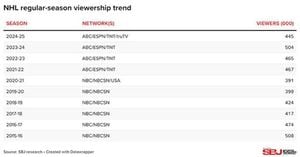April 1, 2025, marks a significant turning point for consumers in Alberta as the federal consumer carbon tax is eliminated, bringing immediate changes to gas prices and utility bills across the province. This decision, announced earlier this month by Prime Minister Mark Carney, has been met with both relief and concern from various sectors of the economy.
The consumer carbon tax, which had been in place since 2019, imposed a levy of 17.6 cents per litre on gasoline and 15.25 cents per cubic metre on natural gas. As of today, the price Canadians pay for emissions will be set at $0, effectively removing this financial burden from consumers. Experts predict that this will lead to a notable drop in fuel prices within 24 hours of the tax's removal.
According to Patrick De Haan, head of petroleum analysis at GasBuddy.com, Canadians should expect a "pretty sizable rollback" in fuel prices. In Calgary, regular gasoline is anticipated to decrease by 11 cents, bringing the price down to approximately $1.39 per litre, while premium gas will fall by five cents to $1.69. Diesel drivers will see the largest cut, with prices dropping by 22 cents to $1.39 per litre. Similarly, in Edmonton, regular gas will drop by nine cents to $1.40 per litre, and diesel will decrease by 22 cents to $1.35 per litre.
Roger McKnight from EnPro reported that the elimination of the carbon tax will result in an effective gas price reduction of around 17.6 cents per litre, which may be rounded up to 18 cents. However, he cautioned that the final pump price will still be influenced by various factors, including crude oil costs and seasonal fluctuations as gas stations transition to summer gasoline.
Homeowners will also benefit from the tax's removal, with those using an average of 10 gigajoules of natural gas per month expected to save about $40 on their utility bills. However, this change may take longer to reflect on their bills as the utility charges are billed monthly. Enmax confirmed that the carbon tax will not apply to natural gas usage past April 1, 2025.
While consumers may rejoice at the prospect of lower gas prices, the end of the carbon tax also means the termination of the carbon tax rebate. Previously, this rebate provided the average family of four in Alberta with about $1,800 annually. The final Canada Carbon Rebate is set to be paid starting April 22, 2025, for those who file their 2024 tax returns before April 2, 2025.
In addition to the gas price reductions, Alberta is also implementing a new tax on alcohol. The federal alcohol excise tax will increase by 2 percent, and the Alberta Gaming, Liquor and Cannabis (AGLC) will introduce a tiered tax on 'high-value' wine. This means that bottles priced above $25 will see a 15 percent increase, while those priced between $15 and $20 will incur a 5 percent markup. Wines priced between $20 and $25 will face a 10 percent increase. This change is expected to affect around 16 percent of all wines sold in Alberta, according to Alberta’s minister of red tape reduction.
Beer Canada estimates that the federal excise tax increase will cost taxpayers about $40 million in the coming year. The increase in alcohol taxes comes at a time when many consumers are already feeling the pinch from rising prices in other areas.
While the immediate effects of the carbon tax's removal are clear, the longer-term implications remain uncertain. Economists like Andrew Leach from the University of Alberta suggest that the removal of the carbon tax may not significantly lower prices on goods that are not directly taxed, such as food and clothing. The carbon price had a minimal impact on inflation, and as such, the removal will likely lead to only slight decreases in prices for these items.
Kevin Grier, a livestock and grocery market analyst, noted that while the removal of the carbon price might not yield immediate savings in grocery costs, it could influence negotiations between grocery chains and suppliers in the long run. The absence of the carbon price may prompt retailers to seek better deals from suppliers, ultimately benefiting consumers.
As the dust settles from this significant policy change, many Albertans are left to ponder how these shifts will affect their wallets in the coming months. The loss of the carbon rebate, particularly for lower-income households, raises concerns about the net impact of these changes. Those who relied on the rebate to offset costs may find themselves in a more precarious financial situation as they adjust to the new economic landscape.
In conclusion, while the removal of the consumer carbon tax promises immediate savings at the gas pump and on utility bills, the broader economic implications of this decision will unfold over time. Consumers will need to remain vigilant as they navigate these changes and consider how they will impact their daily lives.







